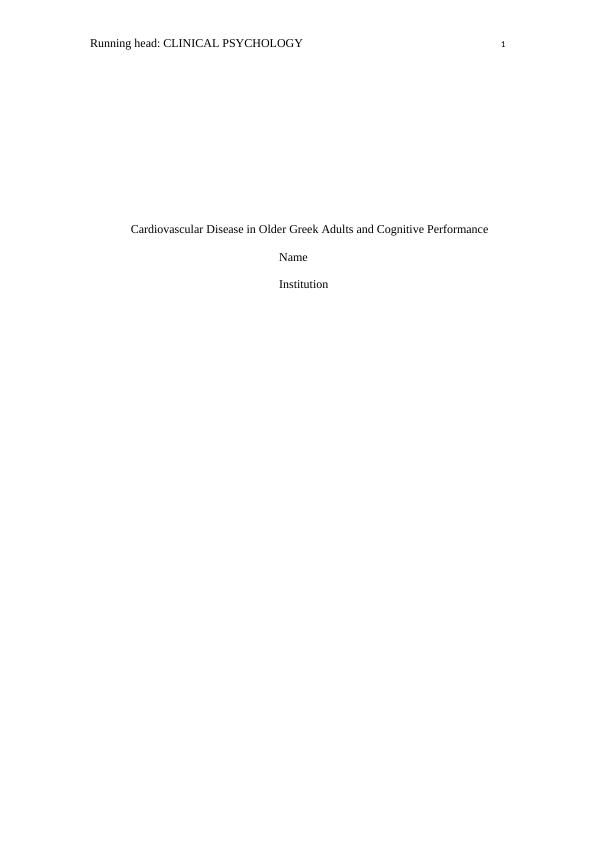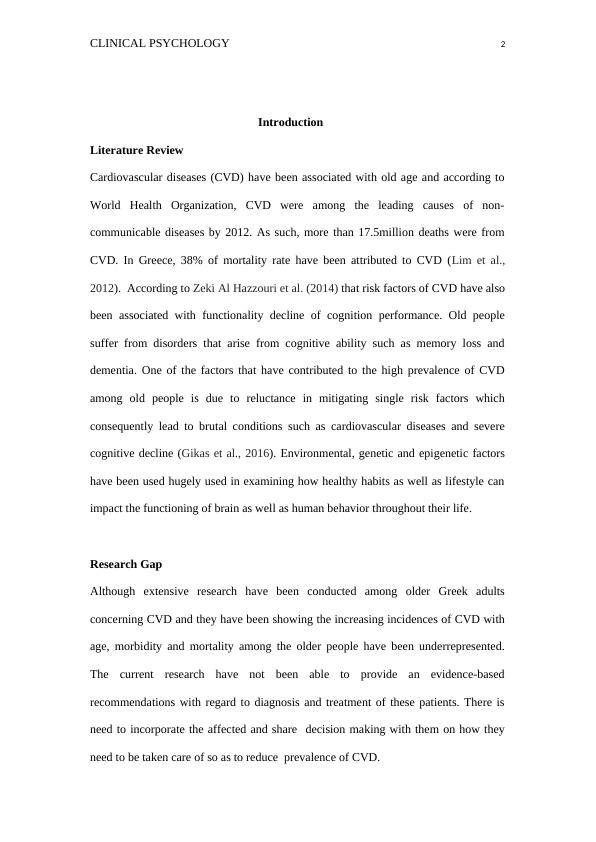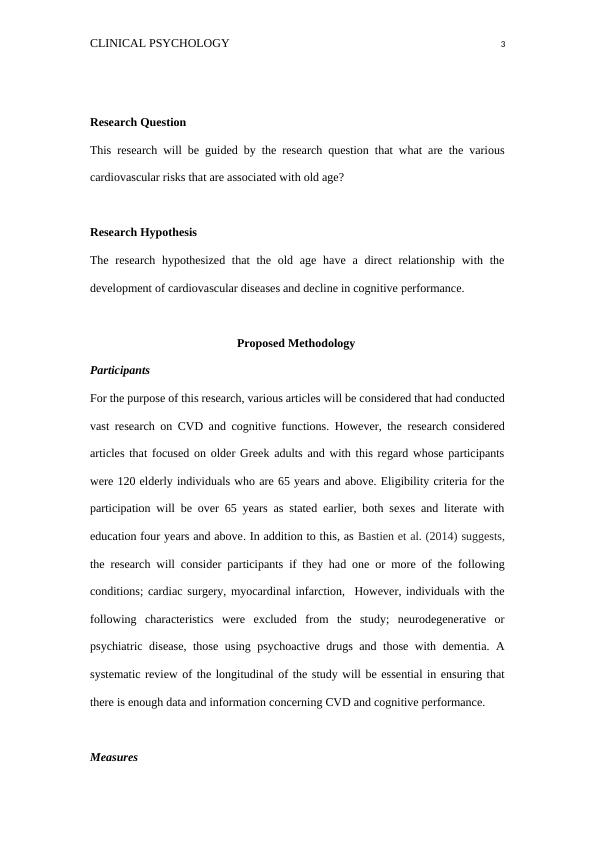Cardiovascular Disease in Older Greek Adults and Cognitive Performance
Added on 2023-05-29
8 Pages1621 Words177 Views
End of preview
Want to access all the pages? Upload your documents or become a member.
Preventing Cardiovascular Disorders in Older Adults: Management Strategies and Treatment
|1
|1253
|215
Cardiovascular Disease in Older Greek Adults and Cognitive Impairment
|24
|6449
|49
Risk Factors for Cardiovascular Disease in Older Adults
|20
|4139
|78
The Impact of Socioeconomic Status on Cardiovascular Disease in Older Adults
|23
|4540
|370
Physical Leisure Activities and the Risk of Dementia in the Elderly
|18
|4706
|309
Anxiety, Reaction Time, and the Variability of Reaction Time in Younger and Older Adults
|91
|11426
|49



